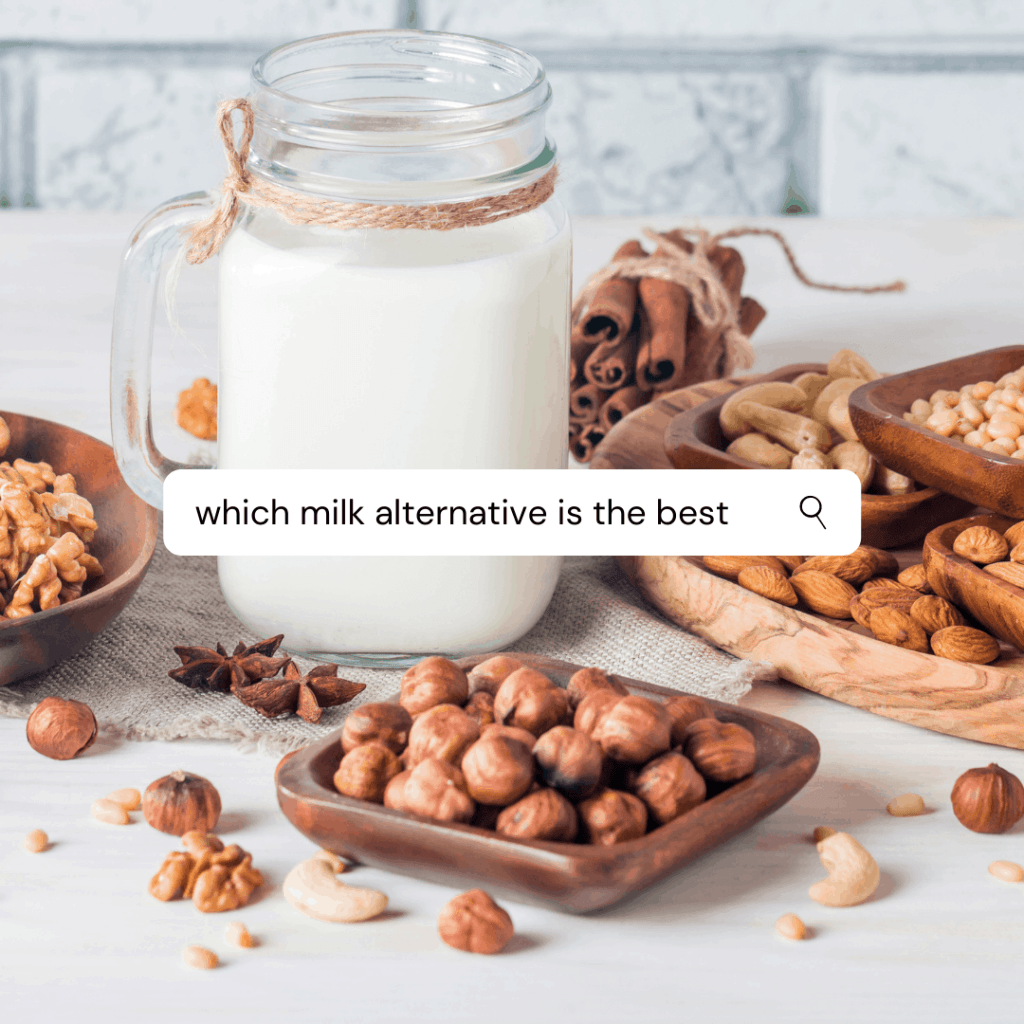
Alternatives to Cow's Milk: Plant-Based Options

As more people are becoming conscious of dietary preferences and health concerns, many are turning to alternatives to traditional cow's milk. Whether it's due to lactose intolerance, dietary restrictions, ethical reasons, or just a desire to try something new, there are plenty of delicious and nutritious plant-based milk options out there. Here’s a look at some of the most popular alternatives to cow’s milk and what makes them stand out.
1. Oat Milk
Oat milk has rapidly become one of the most popular plant-based milks. Known for its creamy texture and slightly sweet taste, oat milk is a great choice for those looking to replicate the richness of cow’s milk. Key benefits include:
- Great for Coffee: Oat milk foams well, making it an excellent choice for coffee lovers, especially in lattes and cappuccinos.
- Lactose-Free: Naturally free of lactose, making it a perfect alternative for those with lactose intolerance.
- Fiber-Rich: Oat milk contains beta-glucan, a type of soluble fiber that’s good for heart health.
With its creamy consistency and subtle sweetness, oat milk is a great alternative to cow's milk in both hot and cold beverages, as well as in baking and cooking.
2. Almond Milk
Almond milk is one of the most well-known and widely available plant-based milks. With a light, nutty flavor and low calorie count, it’s a popular choice for smoothies, cereals, and baking. Here’s what makes it stand out:
- Low in Calories: Almond milk is often lower in calories than cow's milk, making it a great option for those watching their calorie intake.
- Rich in Vitamin E: Almond milk is packed with vitamin E, an antioxidant that supports skin health.
- Versatile: Almond milk can be used in almost any recipe that calls for milk, from coffee to baking to savory dishes.
If you’re looking for a low-calorie, dairy-free option with a mild nutty flavor, almond milk is a great go-to alternative to cow’s milk.
3. Soy Milk
Soy milk is one of the earliest and most established plant-based milk alternatives. Made from soybeans, it’s one of the closest in protein content to cow’s milk. Here’s why soy milk is a great alternative:
- High in Protein: Soy milk is one of the few plant-based milks that contains as much protein as cow's milk, making it an excellent choice for those looking to maintain their protein intake.
- Rich in Nutrients: It’s a great source of calcium and vitamin D, especially when fortified.
- Versatility: Soy milk has a neutral flavor and works well in both sweet and savory dishes, from smoothies to stir-fries.
For those seeking a plant-based milk with a protein profile similar to that of cow's milk, soy milk is a solid choice that’s both nutritious and versatile.
4. Coconut Milk
Coconut milk offers a rich, tropical flavor that can add a unique twist to recipes. It’s made from the flesh of coconuts and is commonly used in cooking, particularly in curries and desserts. Here’s why coconut milk might be your new favorite:
- Distinct Flavor: Coconut milk has a slightly sweet, tropical flavor that pairs wonderfully in desserts and curries.
- Rich in Healthy Fats: It contains medium-chain triglycerides (MCTs), which are a type of fat that may have health benefits, including supporting metabolism and weight management.
- Lactose-Free: Like other plant-based milks, coconut milk is naturally free of lactose, making it perfect for those who are lactose intolerant.
For those who love the flavor of coconut or are looking to add a bit of richness to their cooking and beverages, coconut milk is a great choice.
5. Pea Milk
Pea milk is a newer player in the plant-based milk world but has quickly gained popularity due to its high protein content and creamy texture. It’s made from yellow peas and is a great alternative for those looking for a sustainable and nutritious option. Key benefits include:
- High in Protein: Pea milk offers a higher protein content than most plant-based milks, making it a good option for those who need a protein boost.
- Sustainable: Pea milk is considered more environmentally friendly than other plant-based milks, as peas require less water to grow than almonds or oats.
- Allergen-Friendly: It’s free from common allergens like nuts, soy, and gluten.
If you’re looking for an eco-friendly, protein-packed milk alternative, pea milk could be a great choice for your next grocery haul.
6. Rice Milk
Rice milk is one of the sweetest plant-based milks and is made from milled rice and water. It’s a great option for people with nut or soy allergies. Key characteristics of rice milk include:
- Light Flavor: Rice milk has a thin, watery consistency and a naturally sweet flavor, making it ideal for sweet recipes and smoothies.
- Hypoallergenic: It’s a good option for individuals with allergies to soy, nuts, or gluten.
- Low in Fat: Rice milk is low in fat, making it a good option for those who want a lighter alternative to cow’s milk.
Rice milk is a suitable option for those who prefer a light, sweet flavor and need a hypoallergenic alternative to cow’s milk.
Conclusion
With so many delicious and nutritious alternatives to cow’s milk available, there’s no reason to limit yourself to just one choice. From the creamy richness of oat milk to the nutty goodness of almond milk and the tropical twist of coconut milk, there’s something for every palate and dietary need. Whether you’re lactose intolerant, vegan, or just looking to try something new, these plant-based milks are here to stay, offering plenty of benefits for your health and the environment.






Leave a Reply